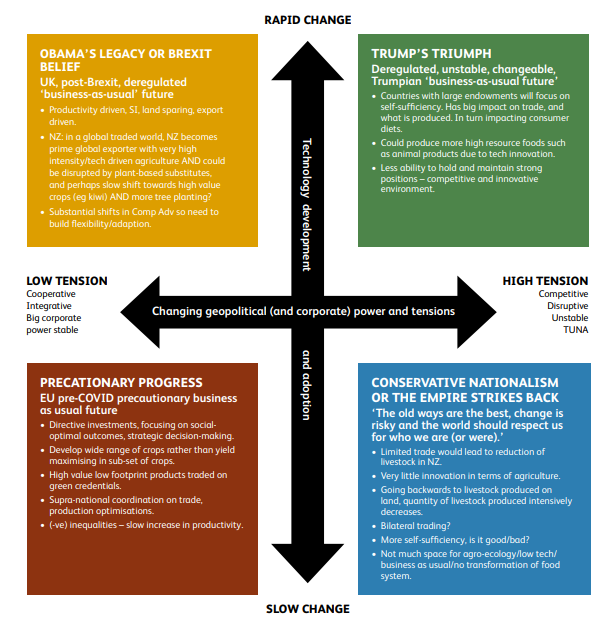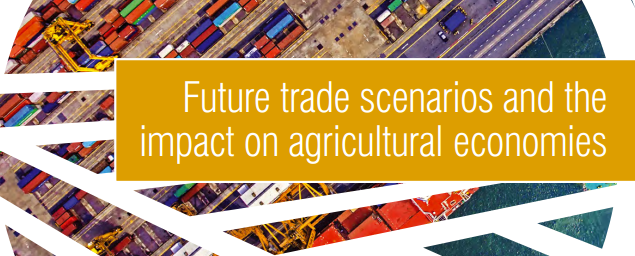A new scenarios report from the International Sustainable Temperate Agriculture Network (TempAg) has been published today showing how economic, social, environmental and political drivers could impact future trade and how these in turn could could shape agricultural economies and their research priorities.
The report highlights the need for demand side change and investment in understanding the best ways to induce such a change. It also explores the benefits of diversifying food types and breadbasket regions, as well as supporting technological developments that factor in the need for a multiplicity of solutions, rather than a focus on a few ‘silver-bullet’ solutions for major commodities within intensive agriculture.
A set of 4 plausible scenarios were used in the exercise, with an aim of exploring the interventions that might help to minimise negative impacts and maximise positive impacts, with any conclusions reached applicable across all the scenarios.
Scenarios are sets of plausible assumptions about how the world might work in the future; typically presented as rich, dialogue driven narratives. Scenario exercises attempt to disrupt our linear thought pattern, through the exploration of possible futures in order to inform present-day decision making. Scenario exercises do not aim to predict the future, they instead enable the discussion of how today’s decisions may play out if, and when, the world changes. Using scenarios can help ensure today’s decision making is robust, forcing us to think about accentuating what might be positive in the future and also allow us to course correct.

This ‘futures thinking’ is particularly useful when exploring the food system, due to the long term nature of the big challenges it faces.
The exercise was coordinated by Tim Benton (Chatham House) and consisted of three workshops and a pre-circulated stimulus paper. Within this paper, the narrative scenarios are described in detail and are shown here. These were developed based on: (i) key characteristics (what the scenario would plausibly look like) (ii) transition from the current situation (how the scenario developed) (iii) European and antipodean agri-food economy characteristics (iv) the vision for agri-food and (v) the decisions that policy-makers, industry, academia, and citizens need to make over the next few years.

This report from the International Sustainable Temperate Agriculture Network (TempAg) uses a scenario exercise to explore how economic, social, environmental and political drivers may impact future trade, and how these in turn might shape agricultural economies, and their research agendas, globally.
TempAg was an international collaborative research network established to increase the impact of agricultural research in the world’s temperate regions. The network was established in April 2015 with support from the OECD Global Science Forum. The network’s activity was jointly coordinated by the Global Food Security (GFS) programme and INRA (National Institute of Agricultural Research, France).
You can view PDF documents by downloading a PDF reader.


